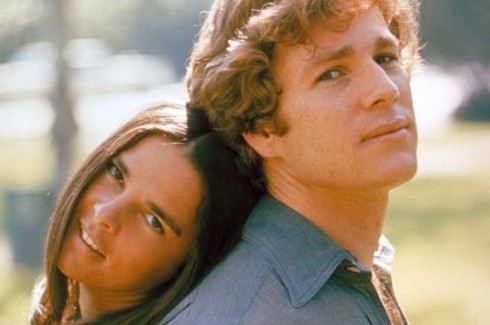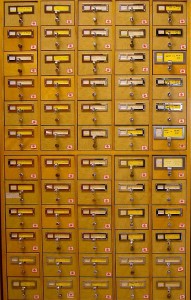What can you say about a fifty-seven-year-old book that has outlived its usefulness? That it was beautiful. And brilliant. And taking up valuable space in my personal library.
Our household has six 84-inch bookshelves lining two living room walls, and four more in the bedroom. All of the living room bookshelves and two of the bedroom bookshelves hold the kinds of general reading that line the living room and bedroom walls of most households that still bother with bookshelves: novels, nonfiction, reference works. But two of the bedroom bookshelves hold volumes that are not the kind you typically find in a home, unless one of the people who live there happens to be someone who writes about science.
I am between projects at the moment, and I’m using this breather to reclaim my workspace. Over the past few years I’ve migrated around the apartment as I’ve moved from one project to the next, like a nomad leaving behind campsites as he follows the herd. The bedroom desk and shelves I abandoned three books ago. I next set up shop in my older son’s bedroom, once he left for college. That was two books ago. I researched and wrote much of my most recent book from the living room couch, accumulating an archeological dig’s worth of files and books and drafts on the coffee table and the carpet beneath it. Madness.
Hence, the purge. First priority was clearing the living room. Last priority is my son’s bedroom. Current priority is the bedroom workspace.
Clearing my desk was relatively easy and painless. Papers, clippings, notepads, and magazines that have sat untouched for as long as they’ve been cluttering corners of my desk have probably outlasted their urgency. (The irony of finding the book Stuff: Compulsive Hoarding and the Meaning of Things under a slurry of papers was not lost on me.) I set aside one tiny pile of material that I deemed worth keeping, threw the rest down the incinerator, and turned my attention to the bookshelves.
I had culled these books over a five-year period of fevered research. Many of them still bear the signatures of their original owners on the front flyleaf, or a library circulation card pouch on the back flyleaf. Here were books that I had greeted rapturously as each arrived in the mail. Books that I knew would prove indispensable in solving research problems, providing historical context, illuminating philosophical quandaries. Books that I could talk to late into the night, or dine with by candlelight, or take for long walks on the beach. We would grow old together, these books and I. They would, I had unthinkingly assumed, last a lifetime.
But now.
Now I see them in a less romantic light. Yes, they bring back happy memories. Actually, they’ve never stopped bringing back happy memories; over the years I have often glanced at that corner of the bedroom with fondness. But the fondness is for the spent passions of youth as much as for the books themselves. Now I’ve discovered—just as Robert Grimm once did, long after he’d signed his name and the date 1960 in this book over here, or just as the Mary D. Reiss Library of the Loyola Seminary in Shrub Oak, N.Y. did, long after an anonymous clerk had inscribed “BF 173 .N44 1958 c. 2” in white ink on the black spine of that book over there—that I can live without them.
It’s not their fault. It’s mine. I need my space.
And here, dear reader, is where you enter my little melodrama. These books, like the papers and magazines on my desk, have been long untouched; they, too, have outlasted their urgency. But I can’t just jam them down the trash chute. I can’t just cast them out on the street. They’re books! Nor can I stuff them into several boxes, stack the boxes on a Radio Flyer, and lug them to the neighborhood used-book store; the nearest to my apartment is the Strand in the East Village, a $20 cab ride away. (Besides, if you’ve ever tried to sell your long out-of-print and dust-jacketless library rejects to the angry mole people in the basement, you know it’s not an experience you wish to relive.) And in the Internet age, would any used-book store even want these cast-offs? Would any reader?
So I ask you: What to do with these books? Suggestions are welcome. So is a U-Haul, backed up to the curb outside my building. And if the doorman objects, just remind him that double-parking in Manhattan means never having to say you’re sorry.

* * *
Images: top, Andreas Praefcke, card catalog from the Harvey S. Firestone Memorial Library of the Princeton University Library, via Wikimedia Commons; middle, Stewart Butterfield, from flickr via Wikimedia Commons.

The nearest Little Free Library I could find to you is in Brooklyn: 185 Saint Marks Ave. Should be good for one or two volumes…Looks like this: http://www.flickr.com/photos/68010601@N03/7359897400/
Donate them to Better World Books for online resale… ?
Start a reading library in the laundry room of your apartment building. This is what I did. Take your books down there. That way you don’t have to live with them, but you can still see them occasionally when you do the laundry. Others can read them too…and when the time comes to pitch them, the job will fall to someone else and not you.
You can sell books on Amazon. You have to be a little dedicated but I’ve done it:
http://www.amazon.com/b/ref=txb_ti_txb_banner?node=2205237011&pf_rd_p=1419113962&pf_rd_s=merchandised-search-5&pf_rd_t=101&pf_rd_i=465600&pf_rd_m=ATVPDKIKX0DER&pf_rd_r=CA3103432CD34986B750
Donate them to the local library (if there’s one nearby). Libraries often have their own fundraising booksales and/or add your books to their collection. And, if you’re especially adventurous, you could go on Amazon to find their fair value and write them off your taxes.
Donate them to African libraries:
http://www.books4cause.com/donate-books-in-new-york-city/
there are a bunch of “crafters” that recycle old books into journals, and other fun objects. Search “recycled books” in Etsy…
I second Bruce’s suggestion, but with a few caveats. Don’t expect the library to take the books into its own collection, they almost never do (especially not books as … well-loved as you describe). Call them first and ask if they can use them for used book sales and if they have any requirements how the books should look.
But really, you CAN throw them away. I know. Sacrilege. But take it from a librarian: sometimes books must be thrown away (we do a lot of that, actually, something many people don’t believe).
Oh, and if you like mushrooms, you can grow them on books.
Being married to a bookseller and having volunteered in a community library, I would suggest contacting a manager at a buy/sell/trade book store and asking for an on-site appraisal for the the lot you’d like to purge. If the lot is remotely marketable, they will write you a check and take them for you, even if they donate or recycle them for charity (http://www.hpb.com/selltous/).